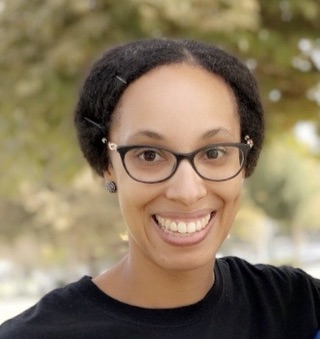
Podcast: Play in new window | Download (Duration: 16:02 — 14.8MB)
Subscribe: Google Podcasts | Spotify | Android | RSS | More
 Jessica Kehinde Ngo recently wrote an impassioned piece bemoaning the fact that “the plantain has long been eclipsed by its banana cousin”. That alarmed me a little, as did the question immediately afterwards: “Where can the curious go to learn about its fascinating transnational history?” My problems were, first, that I do not regard plantains and bananas as cousins. Botanically, they are one and the same. Secondly, despite having apparently done lots of research, Jessica Kehinde Ngo seems not to have encountered the mother lode for all the scientific evidence on banana one might want, for example:
Jessica Kehinde Ngo recently wrote an impassioned piece bemoaning the fact that “the plantain has long been eclipsed by its banana cousin”. That alarmed me a little, as did the question immediately afterwards: “Where can the curious go to learn about its fascinating transnational history?” My problems were, first, that I do not regard plantains and bananas as cousins. Botanically, they are one and the same. Secondly, despite having apparently done lots of research, Jessica Kehinde Ngo seems not to have encountered the mother lode for all the scientific evidence on banana one might want, for example:
The banana vs plantain dichotomy perpetuates the misconception that banana refers to dessert bananas only, and plantain to all cooking bananas, a distinction that doesn’t exist in countries where the banana is native and that arose in English,
We were coming at the word “plantain” from different standpoints. For Jessica, “[e]ach bite of plantain connects me to my roots, though I am many miles from my father’s homeland”. For me, the inability of my Musa-specialist ex-colleagues usefully to distinguish plantains from bananas was at one time a very sore point.
Time to bring the cultural and the botanical together, by talking to Jessica Kehinde Ngo and Julie Sardos, who collects and classifies bananas at the Musa Germplasm Transit Centre.
Notes
- Jessica Kehinde Ngo’s article is Publish the plantain: Why this venerable, global fruit deserves a book of its own.
- Julie Sardos’ account of bananas is expanded in two articles. The first explains the difficulty we have in classifying bananas (and the origins of “plantain” versus “banana”) while the second will take you deep into the rabbit hole of banana classification. To identify a true plantain, this page might help.
- And here is the transcript, thanks to the show’s supporters.

What you call a plantain is probably an accident of history.
Discover what the word means to Jessica Kehinde Ngo and @JulieSardos at eatthispodcast.com/plantains/
I enjoyed your podcast on plantains but was surprised to learn that they were so little known in the UK and US. Here in Vancouver, Canada they’ve been a supermarket staple for decades. The discussion about the distinction between plantains and bananas reminded me of my university days studying the creole dialect of French Guiana. There’s an old French Guianese saying that contained two words that were both translated into French as “banane”. Wanting to make sure I understood, I took a visiting language consultant to the produce section of the local supermarket, and learned that “bannann” were what we call plantains, while “bakov” were our bananas. The saying, referring to any confusion between clearly different things, literally translates as “to mistake plantains for bananas” – an error I suspect must have been made by visiting Europeans unfamiliar with the plantain.
What you call a plantain is probably an accident of history.
Discover what the word means to Jessica Kehinde Ngo and @JulieSardos at eatthispodcast.com/plantains/
Thank you @EatPodcast !
What you call a plantain is probably an accident of history.
Discover what the word means to Jessica Kehinde Ngo and @JulieSardos at eatthispodcast.com/plantains/